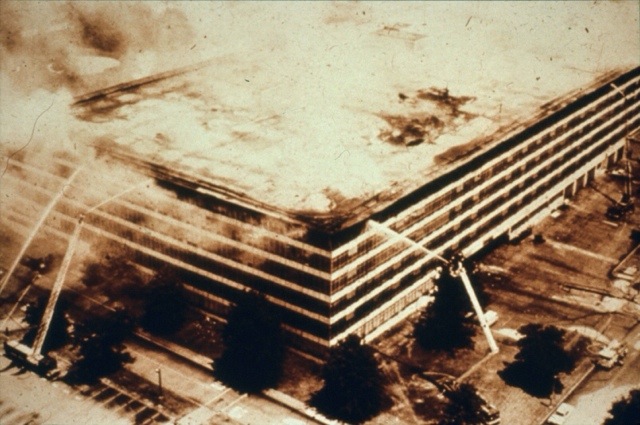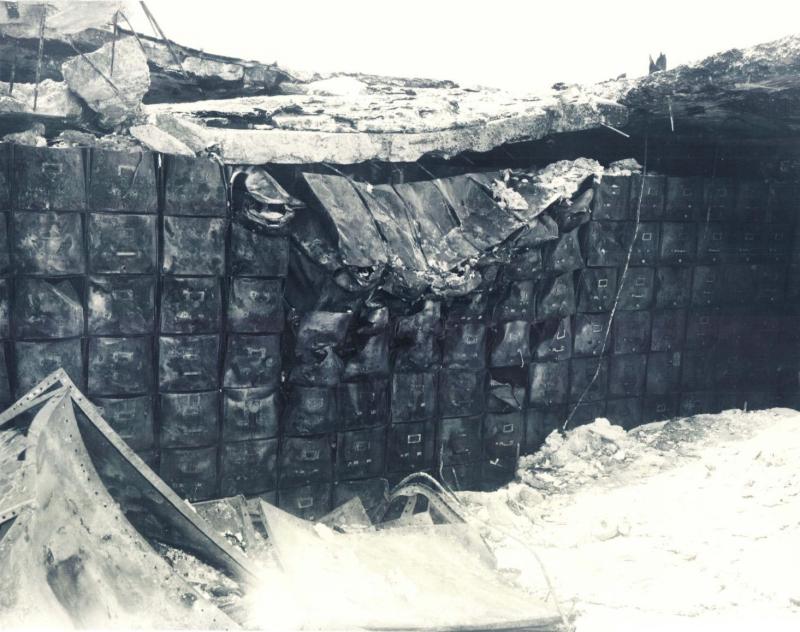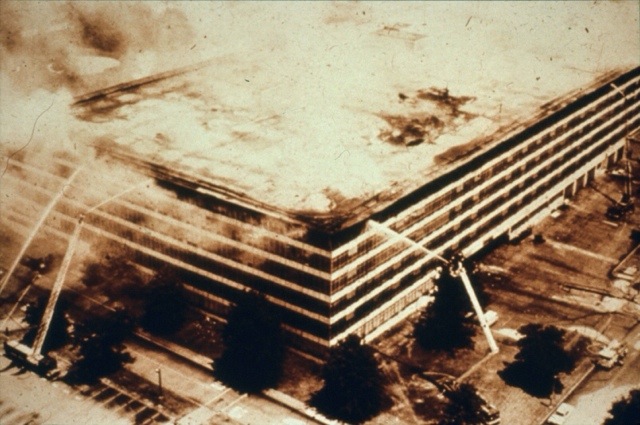By the morning of July 12, 1973, the fire had been raging for more than 24 hours and it wasn’t nearly done. Firefighters first fought the blaze up close on the six floor of the building, but were forced to fall back to the outside and wage a war of attrition from there for the next three days.
When the last flames finally went out on the morning of July 16, no one had been injured, but the U.S. government had suffered a grievous loss. The building in St. Louis was no ordinary building – the “curious blend of warehouse and office space” was the National Personnel Records Center, home to tens of millions of U.S. military records.

The personnel files for as many as 18 million veterans were either burned up or destroyed by the water used to fight the fire. No one knows exactly how many, however, because there were no indices and no copies of the files. The NPRC estimates that 80 percent of U.S. Army files of servicemembers who were discharged between November 1912 and January 1960 are gone, and are 75 percent of Air Force files for servicemembers who were discharged between September 1947 and January 1964.
The other, more intriguing mystery, however, is that to this day no one knows what or who started the fire in the first place.
“Investigation of the cause of the fire began even while the flames were raging through the sixth floor,” a study published a year after the incident said.
At first, the FBI investigated and “sought evidence of arson,” but couldn’t figure out where the fire had started beyond the sixth floor, much less why. Another investigation by the General Services Administration “also failed to uncover any information about the fire’s cause.”
“Several persons who left the sixth floor just prior to midnight indicated to the staff members of the [investigative committee] that they noticed nothing wrong when they left the floor,” the study says. “Similarly, none of the investigations revealed any evidence of mechanical causes of the fire. Although it is possible that an electrical failure of some type might have started the blaze, the destruction of the building structure and the mechanical systems on the sixth floor was such that it was impossible to isolate a definite cause.”
More than four decades later, the NPRC’s website today simply says that “due to the extensive damages, investigators were never able to determine the source of the fire.”

For the conspiracy-minded, this was all too much. A huge, mysterious fire destroys millions of military records, presumably including those belonging to servicemembers who were perhaps involved in shady activities on behalf of the U.S. government? One theory went as far as to connect the fire to a cover-up of the CIA’s chilling foray into mind-control known as the MK Ultra program.
The cause of the fire, however, is not as important to veterans as its lasting impact. The burned up records still can be vital for vets in receiving benefits or even determining where a servicemember can be buried.
“[T]he fire is still taking its toll on military families, as the lost records were quite literally one of a kind and irreplaceable,” a report in Air Force Magazine wrote. “It has sadly become common for military retirees and their family members to run into a dead end when attempting to research or access service records.”
The staff at the NPRC still works to recover what they can when requests for information come in, sometimes sending copies of charged documents to the families.
“People just don’t know the scope of what happens when millions of records are burned,” archivist Debbie Cribbs told Air Force Magazine. “It would take more than one person’s lifetime to repair what happened, so we just do what we can.”
This article was featured in the InsideHook newsletter. Sign up now.
























